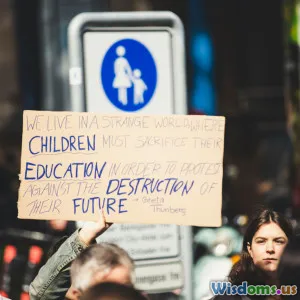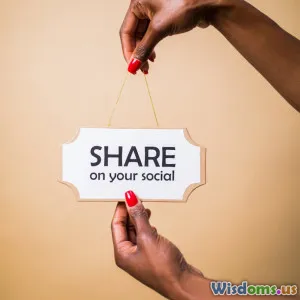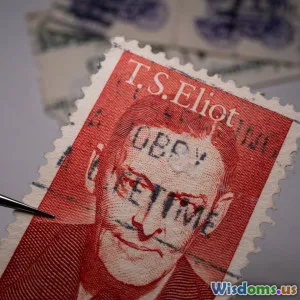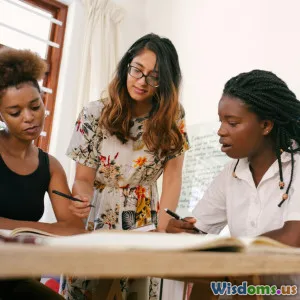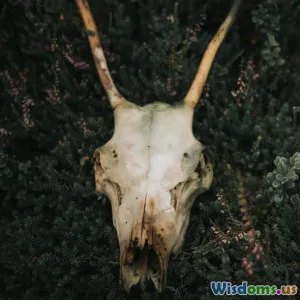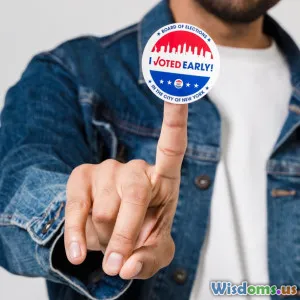
How Secret Societies Influence Politics in Modern Democracies
8 min read Dive into how secret societies shape modern democracies and influence politics behind the scenes. (0 Reviews)
How Secret Societies Influence Politics in Modern Democracies
Secret societies have long captured the imagination of the public—with whispers of hidden elites, clandestine meetings, and opaque influence weaving through history’s tapestry. But beyond mere speculation, do these enigmatic groups truly impact politics in the democratic world today? This article dives deeply into how secret societies operate within modern governments, the channels through which they exert influence, and why their presence matters more than many might realize.
Understanding Secret Societies
Defining Secret Societies
Secret societies are organizations whose activities, membership, or even existence are largely concealed from outsiders. Unlike open interest groups or lobbyists who operate transparently, secret societies emphasize confidentiality, selective membership, and ritualistic traditions.
Well-known examples include the Freemasons, the Illuminati (originally founded in the 18th century Bavaria), and more modern clandestine networks like the Bilderberg Group. Although fictional narratives often exaggerate their scope, many secret societies wield genuine social and political influence.
Historic Context and Evolution
Historically, such societies provided a safe space for marginalized groups or revolutionaries to strategize without persecution—consider the Carbonari in 19th century Italy or the Freemasons' connections to the founders of the United States. In today’s democracies, while societal structures have full legal platforms for voices, secret societies often serve to maintain elite cohesiveness and influence policy indirectly.
Mechanisms of Influence in Modern Democracies
Networking Beyond Public View
In modern politics, personal connections matter immensely. Secret societies foster powerful networks that span politicians, business leaders, judges, and other influential figures. For instance, many prominent political leaders have been linked to Freemasonry lodges or exclusive clubs where informal deals and mutual support agreements are hashed out.
This “old boys’ club” atmosphere allows members to consolidate power quietly, affecting appointments and political alliances that reshape policy directions with limited public scrutiny.
Shaping Political Agendas
Through confidential summits and confidential communications, secret societies subtly influence political priorities—from economic policies to foreign affairs. The Bilderberg Group, which convenes annually with top executives, politicians, and intellectuals, often faces criticism for its secrecy and alleged role in coordinating global agendas related to trade, security, and technology standards.
While such groups claim their discussions are informal and off-the-record, leaked information showcases their role in shaping consensus among global leaders before public decisions.
Influencing Elections and Campaigns
Membership and informal connections sometimes facilitate funding flows and strategic campaign support. Historically, for example, certain fraternal organizations helped mobilize voting blocs or campaign volunteers. In recent decades, political donors linked to exclusive societies have been able to provide quiet financial backing, leveraging personal relationships rather than typical campaign channels.
Legal and Judicial Impact
Secretive networks may also influence judicial appointments and rulings. In some cases, judges or lawmakers belonging to the same secret society maintain consistent ideological stances or rulings favoring business interests or specific political frameworks.
This phenomenon hints at why regulatory or legal reforms occasionally favor insiders, aligned not just through public policies but secret allegiance.
Real World Examples and Case Studies
The Freemasons in U.S. and European Politics
Freemasonry is one of the longest-standing organizations with political ties.
- Numerous U.S. Founding Fathers, including George Washington and Benjamin Franklin, were Freemasons, intertwining their values with democratic frameworks.
- In Europe, members of Parliament and royalty have historically belonged to Masonic lodges, facilitating informal diplomacy. Despite public stages, much of their influence comes from reinforcing trust and maneuvering through exclusive channels.
The Bilderberg Group
Founded in 1954, the Bilderberg summit is an annual gathering combining political leaders, CEOs, and experts. Its secretive nature fuels conspiracy theories. However, the meeting serves as a strategic consultation platform before official policy announcements, quietly harmonizing global elites’ positions.
Notable attendees have included former U.S. presidents and leading EU commissioners—indicating its ongoing sway on international relations.
Skull and Bones at Yale
The secret society Skull and Bones has counted many U.S. politicians among its members, including presidents like George H.W. Bush and John Kerry. This connection builds lifelong alliances that may ease political cooperation or financial assistance throughout their careers.
Why Does This Influence Matter?
Democracies and Transparency
At their core, modern democracies thrive on transparency, accountability, and public participation. Secret societies, by their very nature, work counter to this ethos, fostering spheres of influence that evade public oversight.
Implications for Policy Making
Policies shaped behind closed doors may privilege elite interests over broader public welfare. For example, trade deals or surveillance regulations conceived in elite meetings can disadvantage marginalized groups lacking access.
Public Trust and Democratic Health
Perceived conspiracies or genuine secretive influence can erode trust in democratic institutions. When citizens believe decisions are “rigged” by hidden groups, political apathy or radicalization risks increase.
Conclusion: Illuminating the Invisible Threads
Secret societies, far from mere myths, continue to play nuanced roles in shaping politics within modern democracies. Their power stems less from overt control and more from subtle networking, agenda setting, and influence behind closed doors. By understanding how these societies operate—through historical legacies, elite networking, and covert influence—we can better appreciate the complex layers beneath democratic governance.
In an age of increasing demands for transparency, societies and governments alike face the challenge of ensuring policymaking is open while recognizing that below the surface, informal networks often sway decisions. As political observers and active citizens, awareness of these dynamics is crucial to fostering a true democratic culture where power stays accountable and visible.
References and Further Reading:
- Carroll Quigley, Tragedy and Hope (1966) — Examines the role of secret societies in shaping modern geopolitics
- Daniel Estulin, The True Story of the Bilderberg Group (2005)
- Robert L. D. Cooper, Secret Societies and the French Third Republic (2017)
- Transparency International reports on lobbying and influence in politics
Understanding these secretive forces equips readers with critical lenses to question and engage with the political process more deeply.
Rate the Post
User Reviews
Popular Posts










